#crm zoho login
Explore tagged Tumblr posts
Text
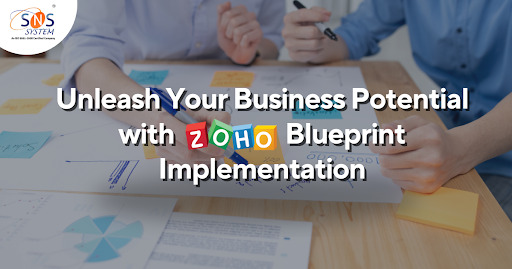
Unleash Your Business Potential with Zoho Blueprint Implementation
Are you looking to streamline your business processes, enhance efficiency, and drive growth? Look no further than Zoho Blueprint. SNS System offers expert implementation services to help you harness the full potential of this powerful automation platform.
Why Choose Zoho Blueprint?
Zoho Blueprint is a low-code automation platform that enables you to create and automate complex workflows without extensive programming knowledge. By automating repetitive tasks, reducing errors, and improving collaboration, Zoho Blueprint can significantly enhance your business operations.
Our Zoho Blueprint Implementation Services Include:
Process Analysis: We thoroughly assess your existing workflows to identify areas for improvement.
Blueprint Design: We create customized blueprints tailored to your specific business needs.
Implementation and Configuration: We deploy and configure Zoho Blueprint to integrate seamlessly with your existing systems.
Testing and Optimization: We rigorously test your workflows to ensure optimal performance and accuracy.
Training and Support: We provide comprehensive training to your team and offer ongoing support to maximize the value of your investment.
Benefits of Zoho Blueprint Implementation:
Increased Efficiency: Automate repetitive tasks, freeing up your team to focus on strategic initiatives.
Improved Accuracy: Reduce errors and ensure data consistency across your organization.
Enhanced Collaboration: Foster seamless teamwork and information sharing.
Faster Time-to-Market: Accelerate product launches and service delivery.
Better Decision Making: Gain valuable insights through automated data collection and analysis.
By partnering with SNS System, you gain a trusted partner with extensive experience in Zoho Blueprint implementation. We are committed to your success and will work closely with you to achieve your business goals.
Contact us today to learn more about how Zoho Blueprint can transform your business operations.
Link: https://snssystem.com/our-services/ZOHO-Blueprint-Implementation/
https://snssystem.com
Contact us: 214-494-0908
Mail: [email protected]
#wordpress zoho integration#zoho crm integration#zoho data integration#wordpress zoho crm#zoho crm help#zoho lead generation#crm zoho login#zoho customer support#sales crm system#crm for services#crm help#zoho create
0 notes
Text
Web Development for Real Estate Portals: What Features Really Matter
In a competitive real estate market, having a high-performing website is no longer optional—it’s essential. Whether you’re an agency, a property listing platform, or an independent realtor, your website needs to do more than just display listings. It should engage users, build trust, and support smooth transactions.
That’s why a professional Web Development Company plays a critical role in designing and building real estate portals that are not just attractive, but also powerful and conversion-driven. But what features actually make a difference in this industry? Let’s explore the ones that matter most.
1. Advanced Property Search and Filters
Real estate users come to your site with specific goals: a budget, location, number of bedrooms, or desired amenities. A robust search function with advanced filters is non-negotiable.
Effective filters include:
Price range sliders
Location-based search (with map integration)
Property type (rent, buy, commercial, residential)
Area in sq. ft.
Amenities (gym, parking, pool, pet-friendly, etc.)
The more intuitive and detailed your search system is, the faster users can find properties that match their needs—and stay engaged.
2. Interactive Maps and Geolocation
Location is everything in real estate. Integrating Google Maps or Mapbox APIs allows users to visualize listings, explore neighborhoods, and compare options based on geography.
Key capabilities include:
Pin-based map listings
Nearby schools, hospitals, transport links
“Draw on map” search to define preferred zones
Distance-to-workplace calculators
An interactive map turns your portal into a dynamic discovery tool, not just a static directory.
3. Mobile-Responsive Design
Most real estate searches begin on mobile. Whether it’s a quick apartment lookup or browsing homes on the go, your website must offer a seamless mobile experience.
Development teams ensure:
Fast-loading pages on mobile networks
Tap-friendly filters and buttons
Responsive images and property cards
Sticky call-to-action buttons (like “Schedule Visit” or “Call Agent”)
If your site isn’t mobile-optimized, you’re losing potential clients before they even get started.
4. High-Quality Image Galleries and Virtual Tours
Real estate is a visual business. Users want to “experience” the property before committing time to a physical visit. That’s why image galleries, 360° views, and video walkthroughs are vital.
Agencies often integrate:
Lightbox galleries for zoom and detail
VR-compatible virtual tours (especially for premium listings)
Drone view embeds for showcasing entire plots or high-rise perspectives
Investing in visual content boosts user engagement and improves lead quality.
5. Lead Capture Forms and CTAs
Every real estate portal must guide users toward conversion. Strategically placed lead capture forms, contact buttons, and CTAs drive action.
Examples include:
“Schedule a visit” or “Request more info” buttons
WhatsApp or call integrations for instant engagement
Inquiry forms tied to individual listings
Pop-ups with location-based offers
Smart CTAs turn passive browsing into direct leads for agents or sellers.
6. CMS for Easy Listing Management
Real estate listings are dynamic—they change daily. A strong backend powered by a content management system (CMS) allows your team to:
Add or remove listings
Update prices, availability, or features
Auto-expire outdated listings
Add agent bios and service pages
Whether it’s WordPress, Webflow, or a custom CMS, it should be simple enough for non-technical staff to use without developer assistance.
7. Agent Dashboards and CRM Integration
For multi-agent portals, each agent or broker needs their own dashboard to manage leads, listings, and appointments. Agencies often build:
Secure login areas for agents
CRM integrations (like Zoho, HubSpot, Salesforce)
Performance analytics for listing views, clicks, and conversions
This transforms your portal into an all-in-one platform for internal operations—not just public browsing.
8. Speed, Security, and SEO Optimization
Real estate portals deal with heavy media files, complex filters, and high traffic. That makes performance, security, and discoverability key.
Web development companies ensure:
Fast page loads through CDN and caching
SSL encryption and secure data handling
SEO-friendly URLs, meta tags, and schema markup (like RealEstateAgent, Residence, Place)
These technical improvements support visibility and trust��two critical pillars of real estate marketing.
Conclusion
A successful real estate portal is more than a property directory—it’s a responsive, user-friendly platform that connects buyers, sellers, and agents efficiently. From smart search filters and interactive maps to powerful backend tools and visual content, every feature must serve the goal of guiding users from interest to action.
To achieve that level of sophistication, partnering with a Web Development Company that understands the nuances of the real estate market is key. With the right team and technology, your portal can become a trusted marketplace that not only attracts users—but converts them.
0 notes
Text
What Makes a Good Membership Plugin in 2025? Key Features to Look For
In 2025, the digital membership economy continues to thrive, and choosing the right membership plugin can make or break the success of your online business. Whether you're launching an exclusive content platform, an eLearning website, or a subscription-based community, having a reliable and feature-rich membership plugin is crucial. Below, we explore the essential features, capabilities, and integrations that define the best membership plugins in 2025.
🚀 Future-Proof Integration Capabilities
A top-tier membership plugin in 2025 must offer seamless integrations with all major platforms and tools. From payment gateways like Stripe, PayPal, and Razorpay, to email marketing tools like Mailchimp, Klaviyo, and ActiveCampaign, integration is non-negotiable.
Key integrations to look for:
CRM tools: HubSpot, Zoho, Salesforce
LMS platforms: LearnDash, LifterLMS, Tutor LMS
eCommerce platforms: WooCommerce, Shopify, BigCommerce
Communication platforms: Slack, Discord, Zoom
If your plugin doesn’t support Zapier or Make (Integromat), it’s already behind the curve.
💳 Multiple Payment Options & Flexible Billing
Subscription flexibility is a core expectation in 2025. The ideal membership plugin must allow for:
Recurring payments (monthly, annually, quarterly)
One-time fees
Free trials and paid trials
Prorated billing
Upgrade/Downgrade plans without canceling
Support for global currencies, tax compliance (like EU VAT, GST), and invoice generation is critical. Plugins should also support Buy Now, Pay Later (BNPL) options such as Klarna or Afterpay to attract younger audiences.
🛡️ Enterprise-Grade Security & Content Protection
Members expect their data to be safe. Therefore, GDPR, CCPA, and PCI-DSS compliance are essential. Additionally, the plugin must offer:
Role-based access control
Encrypted login and two-factor authentication
IP restriction and geo-blocking
Anti-sharing protection (to prevent account misuse)
High-quality plugins use token-based authentication and email verification before granting access.
🧩 Advanced Content Dripping and Gating Mechanisms
Gone are the days of static content delivery. A modern membership plugin should offer:
Time-based content dripping (e.g., release Module 1 after 7 days)
Action-based unlocking (e.g., unlock next lesson after quiz completion)
Progressive onboarding sequences
Conditional content access based on member tags, behavior, or subscription tier
This leads to higher engagement, reduced churn, and better user satisfaction.
📊 Built-In Analytics & Reporting Dashboards
You can’t improve what you don’t measure. The best membership plugins in 2025 come equipped with real-time dashboards and advanced analytics.
Metrics you should track:
User retention rate
Churn rate
Revenue per member
Average subscription duration
Popular content/modules
Payment failure trends
Look for plugins that offer Google Analytics 4, Facebook Pixel, and custom event tracking compatibility out of the box.
📱 Mobile-First Member Experience
With mobile traffic exceeding 60% globally, your membership plugin must offer a responsive user experience. Bonus points if it supports:
Progressive Web Apps (PWA)
Customizable member dashboards
Mobile push notifications
In-app purchases for iOS and Android
Plugins that fail to deliver mobile accessibility are instantly disqualified from serious consideration.
🧠 AI-Powered Personalization and Automation
2025 plugins must be smart. AI-enhanced capabilities now power:
Dynamic content recommendations
Personalized upselling offers
Predictive churn prevention
Automated email journeys
The best membership plugins integrate with AI assistants and chatbots, helping automate FAQs, billing queries, and even community moderation.
📥 Easy Migration & Import Tools
Switching from one membership plugin to another shouldn’t be a nightmare. Look for:
CSV import/export
Auto-mapping for membership levels
Retention of subscription history
Migration guides or built-in migration wizards
Seamless onboarding is vital, especially for sites with thousands of active members.
👥 Tiered Membership & Group Subscriptions
A modern membership plugin must support:
Multiple pricing tiers with unique access levels
Team or group memberships (perfect for corporate clients)
Volume discounts
Add-on purchases
Support for parent-child account structures (e.g., one admin with multiple users under them) gives you a competitive edge.
🎨 Full Customization Without Code
Your brand matters. Top-tier plugins must offer:
White labeling options
Custom CSS/JS injection
Drag-and-drop member area builder
Custom email templates
The plugin should not lock you into rigid templates or force branding that isn’t yours.
🌐 Multilingual and Multisite Support
Global audiences demand multilingual support, and the best membership plugins now offer compatibility with:
WPML, Polylang, or TranslatePress
Multisite WordPress installations
RTL language support
Also, ensure it handles timezone localization and region-specific pricing with precision.
📞 World-Class Support and Documentation
Support is not an afterthought. Choose a plugin with:
24/7 live chat
Extensive documentation
Tutorial videos
Dedicated onboarding support
Developer-friendly API documentation
A strong plugin is only as good as the support behind it.
Final Thoughts
Choosing the right membership plugin in 2025 means investing in flexibility, security, AI-driven engagement, and global readiness. Whether you're running a coaching business, an eLearning academy, or an exclusive content platform, your membership plugin should empower growth without friction.
Focus on plugins that evolve fast, offer constant updates, and support the way you want to scale.
0 notes
Text
Integrating WhatsApp OTP with CRM Systems
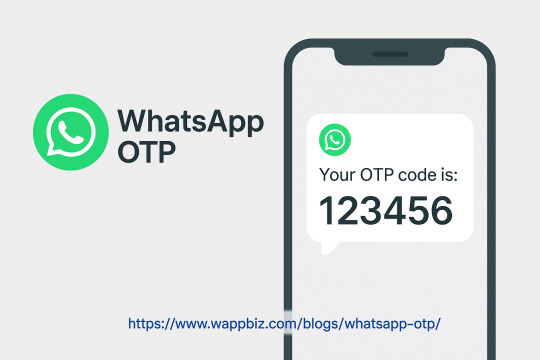
WhatsApp OTP (One-Time Password) is a secure and reliable method for verifying user identities. It has become increasingly popular for businesses looking to provide easy, fast, and secure authentication for their customers. But what if you could integrate WhatsApp OTP with your CRM (Customer Relationship Management) system? Doing so can further streamline your customer interactions and enhance your business operations.
In this blog, we will walk you through the process of integrating WhatsApp OTP with your CRM system and explain the benefits of doing so.
1. What is CRM Integration and Why Does it Matter?
CRM integration is the process of connecting your WhatsApp OTP system with a CRM platform, enabling you to manage and sync customer data, messages, and communications in one place. This integration allows you to automate customer interactions, track communication history, and enhance customer engagement.
Integrating WhatsApp OTP with your CRM system offers several benefits:
Real-time synchronization of customer data between WhatsApp and your CRM.
Streamlined verification for customer sign-ups or logins.
Automated customer support and follow-up messages.
2. Choosing the Right CRM System for WhatsApp OTP Integration
To start integrating WhatsApp OTP with your CRM, you’ll first need to ensure that the CRM system supports WhatsApp Business API integration. Some popular CRMs that allow WhatsApp integration include:
WappBiz
HubSpot
Salesforce
Zoho CRM
Freshsales
Pipedrive
These CRMs offer API access and provide the ability to integrate with WhatsApp Business API, making it easy to send OTPs and automate customer communication.
3. Steps to Integrate WhatsApp OTP with Your CRM
Step 1: Set Up WhatsApp Business API
To begin the integration process, you first need to set up the WhatsApp Business API. You can either set it up on your own server or use a third-party API provider like WappBiz,Twilio, 360Dialog, or MessageBird. Once set up, you will have access to the API endpoints needed to send WhatsApp OTPs.
Step 2: Connect Your CRM to WhatsApp API
Once your WhatsApp Business API is set up, you need to integrate it with your CRM. If you are using a CRM that already offers WhatsApp Business API integration (like Zoho CRM or Salesforce), this step can be as simple as linking the CRM with your WhatsApp API account.
If your CRM does not have a built-in integration, you can connect it using Zapier or custom API development to push customer data between the two platforms.
Step 3: Create OTP Templates in WhatsApp
Now that your CRM is connected to WhatsApp Business API, you’ll need to create an OTP template. These templates must be approved by WhatsApp before you can use them for sending OTPs. The template must include the text of the OTP message, which will be sent to users.
Example OTP Template: "Your OTP for logging into [Your Business Name] is {{OTP}}. This OTP is valid for the next 10 minutes."
Step 4: Automate OTP Generation and Delivery
With the CRM and WhatsApp API integration in place, the next step is to automate the OTP generation and delivery process. Here’s how to do it:
User requests OTP: When a user requests an OTP for verification (e.g., via your website or mobile app), your CRM triggers the OTP generation process.
Generate OTP: Use your OTP generation tool or service to create a unique code for the user.
Send OTP via WhatsApp: Your CRM system sends the generated OTP via WhatsApp using the WhatsApp Business API. The OTP message is sent using the pre-approved template you created earlier.
Step 5: Verify OTP
Once the OTP is sent, the user enters the code in your application or website. Your CRM system will verify the entered OTP against the one sent and confirm whether it’s correct. If the OTP is valid, the user is successfully authenticated.
4. Benefits of Integrating WhatsApp OTP with Your CRM
Streamlined User Authentication
Integrating WhatsApp OTP with your CRM system allows businesses to streamline the user authentication process. Customers can receive their OTP directly on WhatsApp, eliminating the need for SMS-based OTP systems or email verifications.
Real-Time Data Sync
Once integrated, your CRM will have real-time access to data, including OTP status, which ensures your teams always have up-to-date customer information. This is especially useful for sales teams, customer support, and marketing.
Improved Customer Experience
WhatsApp is one of the most widely used messaging platforms globally. Sending OTP via WhatsApp ensures that customers receive their authentication codes in a secure, familiar, and fast way, improving the overall customer experience.
Automation for Customer Support
By integrating WhatsApp OTP with your CRM, businesses can automate customer support processes. For instance, after OTP verification, your CRM can trigger follow-up messages, send purchase details, or provide onboarding instructions automatically.
Enhanced Security
OTP verification helps ensure that only authorized users can access accounts, protecting against fraud and unauthorized access. The integration with your CRM enhances security by allowing your system to verify users quickly and accurately.
5. Challenges of Integrating WhatsApp OTP with CRM
While the integration of WhatsApp OTP with your CRM system brings significant benefits, it’s not without its challenges:
API Limitations: Depending on your CRM and the WhatsApp API provider you choose, there may be limitations in terms of message volume, functionality, or customization.
User Consent: You must ensure that users give explicit consent to receive OTPs via WhatsApp, especially for GDPR compliance.
Data Security: As with any integration involving personal data, it's essential to comply with data protection regulations, ensuring the security of the OTP and the user’s personal information.
Conclusion
Integrating WhatsApp OTP with your CRM system is an effective way to improve user authentication, automate workflows, and enhance customer experiences. By using WhatsApp Business API alongside your CRM, you can create a seamless, secure process for sending OTPs and verifying user identities. While there may be challenges along the way, the benefits of integration — including real-time data synchronization, automated customer support, and improved security — make it a worthwhile investment for businesses looking to streamline their operations and improve customer engagement.
By following the steps outlined in this blog, you can successfully integrate WhatsApp OTP with your CRM and take your business operations to the next level.
0 notes
Text
Essential Tools for Streamlining Your Client Onboarding Process

1. CRM Tools for Centralized Client Management
Customer Relationship Management (CRM) tools like HubSpot, Salesforce, and Zoho CRM are indispensable for managing client information effectively. These tools help:
Organize client contact details and communication history.
Set up automated follow-ups and reminders.
Track the status of onboarding tasks.
By using a CRM, your PPC services team in Pune can maintain a centralized system, ensuring that no client details are overlooked during onboarding.
2. Project Management Tools
Platforms like Trello, Asana, or Monday.com streamline task assignment and tracking. For a PPC agency, these tools can be used to:
Create detailed onboarding checklists.
Assign tasks to specific team members, such as account setup or keyword research.
Monitor progress in real time.
These tools ensure that all onboarding activities are completed promptly and systematically.
3. Proposal and Contract Management Software
Using tools like PandaDoc or DocuSign simplifies the creation and signing of contracts. Key features include:
Customizable templates for proposals and agreements.
E-signature capabilities for faster approvals.
Real-time tracking of document status.
With these tools, your PPC services team can reduce delays and ensure all formalities are completed efficiently.
4. Communication Platforms
Effective communication is the cornerstone of a smooth onboarding process. Tools like Slack, Microsoft Teams, or Zoom enable real-time collaboration by offering:
Instant messaging for quick queries.
Video conferencing for detailed discussions.
Channels dedicated to specific clients or projects.
These platforms keep communication transparent and ensure that clients feel involved from the start.
5. Data Collection and Reporting Tools
Collecting relevant data is critical during onboarding to create effective PPC campaigns. Tools like Google Forms, Typeform, or Jotform help gather:
Business goals and target audience details.
Budget preferences and campaign objectives.
Login credentials for ad platforms.
This ensures your PPC services in Pune are customized to meet each client’s unique requirements.
6. Advertising Platform Setup Guides
Onboarding often involves setting up or auditing ad accounts. Tools like Google Ads Editor or Facebook Business Suite streamline account setup and campaign management. They allow you to:
Verify proper account configurations.
Set up billing information.
Optimize ad account settings based on industry best practices.
Ensuring these setups are flawless minimizes errors and enhances campaign performance.
7. File Sharing and Collaboration Tools
Tools like Google Drive, Dropbox, or OneDrive make it easy to share important documents and creative assets with clients. Features include:
Secure storage for sensitive information.
Real-time editing and collaboration.
Easy access to files from any device.
These tools keep all parties on the same page, ensuring transparency and efficiency.
8. Analytics and Reporting Tools
To build trust with clients, offer clear insights into campaign performance from day one. Tools like Google Analytics, SEMrush, or Supermetrics provide:
Initial performance benchmarks.
Customized dashboards tailored to client needs.
Regular reporting to track campaign success.
Your PPC services in Pune can stand out by showcasing professionalism and data-driven decision-making during onboarding.
9. Training and Knowledge-Sharing Platforms
Educating clients about PPC strategies can foster collaboration. Tools like Loom or Thinkific help create and share:
Introductory videos explaining PPC concepts.
Tutorials on accessing reports and dashboards.
Guides for providing constructive feedback
These tools empower clients, making them feel more confident about their investment in your PPC services.
10. Automated Workflows
Automation tools like Zapier or Make (formerly Integromat) can connect various platforms, reducing manual effort. For example:
Automatically add client details from forms to your CRM.
Notify team members of new onboarding tasks.
Trigger follow-up emails to clients post-onboarding.
Automation saves time, allowing your team to focus on delivering exceptional PPC services in Pune.
Conclusion
An efficient onboarding process sets the tone for a successful partnership. By leveraging the right tools, you can ensure that your PPC services are delivered seamlessly, building trust and long-term client relationships. As a trusted provider of PPC services in Pune, Digital Rhetoric is dedicated to optimizing every aspect of the client experience. From onboarding to campaign execution, we use cutting-edge tools to deliver unparalleled results.
Ready to streamline your PPC campaigns? Visit our dedicated page: PPC Services in Pune and let’s take your business to new heights!
0 notes
Text
Tailored Technology Stack for On-Demand Service Apps: Streamlining Modern Convenience

On-demand service apps have revolutionized how businesses operate by providing seamless booking and service delivery experiences. Be it salons, laundry, healthcare, or car wash services, these apps simplify appointment scheduling, reduce no-shows, and enhance user convenience. Businesses looking to maximize customer satisfaction and profits must focus on choosing the right technology stack for their apps.
Key Industries Benefiting from On-Demand Apps
On-demand delivery apps cater to various industries, enabling smooth service operations:
Beauty salons
Doctor appointment bookings
On-demand laundry services
Home care and handyman services
Car wash and carpooling
Restaurant reservations and tutor bookings
For businesses exploring custom development, nectarbits offers comprehensive on-demand app development solutions tailored to your unique needs.
Essential Technology Stack for On-Demand Apps
Front-End Development
Mobile Technologies:
Android: Flutter, Kotlin, Java for visually appealing and functional apps.
iOS: Swift and Objective-C, leveraging Apple’s design principles for clean interfaces.
Web Development: HTML5, CSS3, JavaScript, Bootstrap for responsive admin and user dashboards.
Back-End Development
Programming Languages: Node.js and Python are preferred for their scalability and flexibility.
Databases:
MySQL and PostgreSQL for structured data.
MongoDB for managing unstructured data.
API Integration
Payment Gateways: Stripe, PayPal, and Razorpay for secure transactions.
Maps & Location Services: Google Maps API for route optimization and live tracking.
Cloud Hosting
AWS and Google Cloud offer scalable infrastructure for hosting services, eliminating hardware maintenance hassles.
Third-Party Integrations for Enhanced Functionality
Social Media APIs: Seamlessly integrate platforms like Facebook and Instagram for login and sharing options.
CRM Tools: Salesforce and Zoho for managing customer relationships.
Analytics Tools: Mixpanel and Firebase for performance tracking and user insights.
Conclusion
By choosing the right technology stack, businesses can build robust, user-friendly on-demand delivery apps that cater to modern consumer expectations. Partner with a reliable developer like nectarbits to create apps that stand out in today’s competitive market.
Explore the future of convenience with tailored on-demand solutions!Read more: Tech Stack Essentials for On-Demand Apps
#ondemandapps#softwaredevelopment#techinnovation#appdevelopment#nectarbits#ondemandapp#techstack#businessgrowth
1 note
·
View note
Text
Which software is best for insurance brokers?
AgencyBloc: Ideal for health and life insurance brokers, offering CRM, commissions tracking, and automated workflow features.
Applied Epic: A comprehensive platform for large agencies, offering policy management, customer relationship management (CRM), and accounting.
Mindzen Mzapp Insurance Broker Software: Offers features tailored to Indian insurance brokers, such as CRM management, client login, claims, policy renewals, and employee benefits integration.
Zoho Insurance CRM: A customizable CRM that integrates with various insurance management tools for tracking clients, leads, and policy renewals.
HawkSoft: Popular for small to medium-sized agencies, it provides a robust system for managing policies, claims, and commissions.
NowCerts: Offers cloud-based agency management, focusing on efficient claims handling, customer data management, and carrier integrations.Insurance Broker Management Software - Insurance Broker Software in India | Top Insurance Broking SoftwareSay goodbye to managing multiple software solutions. Mzapp provides seamless, all-in-one insurance broker management software.https://mindzen.com/
You can explore the features of Mzapp Insurance Broker Software along with their offerings like Employee Benefits Management and Retail POSP Insurance Management on this site.
#InsuranceBrokerSoftware |#InsuranceCRM |#InsuranceTech |#InsurTech |#InsuranceSolutions |#PolicyManagement |#InsuranceSoftware |#ClaimsManagement |#InsuranceAutomation#InsuranceIndia |#InsuranceBrokersIndia |#POSPIndia |#HealthInsuranceIndia |#InsurTechIndia#EmployeeBenefitsSoftware |#HealthInsuranceSoftware |#InsuranceCRMIndia |#ClientManagement |#EmployeeHealthInsurance |#CRMSoftware#DigitalInsurance |#CustomerEngagement |#InsuranceMarketing |#InsuranceForBusiness |#BrokerageSolutions
0 notes
Text
Supercharge Your Lead Management: A Step-by-Step Guide to Web-to-Lead Automation with Zoho CRM
Effective lead management is essential for business success. It’s not just about generating leads; properly managing and nurturing these leads can transform them into loyal customers.

Streamlining this process becomes more efficient when you combine web-to-lead functionality with a powerful CRM like Zoho CRM and automation capabilities like Zoho Flow. This comprehensive guide will walk you through each component, providing technical insights and actionable steps to optimise your lead management strategy.
How to Boost Lead Management Using Web-to-Lead Automation
Understanding Web-to-Lead
Web-to-lead is an effective way for businesses to capture leads directly from their websites. Whenever a visitor expresses interest—whether through a form, resource download, or newsletter signup—this data is automatically added to your CRM. This automation simplifies lead generation and ensures timely follow-up.
Key Benefits:
Efficiency: Automated data capture reduces manual effort.
Accuracy: Eliminates errors associated with manual entry.
Real-Time Data: Instant recording enables timely responses.
Improved Lead Nurturing: Quick access to leads facilitates better communication.
Setting Up Zoho CRM Web Forms
Creating web forms in Zoho CRM is a straightforward process:
Login to Zoho CRM: Access the setup from the top-right corner, and navigate to the Developer Space, where you'll find Web Forms.
Create a Web Form: Select the module, such as Leads, and drag-and-drop essential fields like Name, Email, and Phone Number.
Customise Your Form: Tailor fields to your needs, ensuring key information is captured.
Add Form Details: Give your form a descriptive name and add appropriate tags.
Embed the Form: Copy and paste the form’s code into your website's HTML.
Test and Use: Ensure your form is working correctly by testing various scenarios.
Integrating Zoho CRM with Your Lead Management Strategy
Once your web form is functional, you can integrate it into your lead management strategy with Zoho CRM. Zoho CRM not only acts as a data warehouse but also helps manage customer interactions, sales, and marketing efforts.
Zoho CRM Features:
Lead Management: Track, score, and nurture leads through the sales funnel.
Sales Automation: Automate tasks like follow-up, lead assignment, and reminders.
Reporting: Create analytical reports and track performance metrics.
Automating Workflows with Zoho Flow
Zoho Flow allows you to automate repetitive tasks, ensuring leads are managed efficiently. With Zoho Flow, you can connect different apps and automate actions like sending notifications to the sales team when a new lead is created.
Setting Up Zoho Flow:
Create a Flow: Choose Zoho CRM as the trigger application and set events like “New Lead Created.”
Select an Action Application: Automate actions like sending Slack messages or updating Google Sheets.
Test the Flow: Ensure the automation works as intended by generating test leads.
Advanced Automation Techniques
For more advanced needs, custom coding can help enhance your automation efforts. For example, you can create a Deluge script to track UTM parameters from leads to measure the effectiveness of marketing campaigns.
Best Practices for Lead Management Automation
To ensure your lead management process remains effective:
Review automation flows regularly.
Keep CRM data clean and up-to-date.
Personalise communication even after automation.
Track metrics like conversion rates and lead response times.
Train your team on Zoho CRM and Zoho Flow to maximise potential.
Real-World Example: XYZ Digital Marketing
XYZ Digital Marketing, a fast-growing agency, struggled with manual lead management. By implementing Zoho CRM and Zoho Flow, they automated the process, reducing response times from 48 hours to just one hour and increasing conversion rates by 30%. Their sales team saved time on data entry, allowing them to focus on nurturing relationships and closing deals.
Conclusion
Effective lead management can make or break an organisation in today's competitive landscape. By integrating web-to-lead functionality with Zoho CRM and automating workflows with Zoho Flow, businesses can streamline their operations, nurture leads, and drive sustainable growth. Whether you're running a small business or a large corporation, utilising these tools will position you for success in your lead generation and management efforts.
Ready to optimise your lead management process? Connect with IT Solutions Solved today to get started!
0 notes
Text
10 Low-Code Platforms to Streamline Your Development Pipeline
In the digital age, businesses strive to balance efficiency, quality, and speed in their development processes. Low-code platforms have emerged as a game-changer, enabling organizations to streamline their development pipelines by empowering both professional developers and citizen developers to create applications with minimal coding required.
Here, we explore 10 leading low-code platforms that can revolutionize your development pipeline:
1. Kovaion’s Low-Code Platform:
Kovaion’s Low-Code Platform stands out for its user-friendly interface and robust feature set designed to streamline development workflows. With its intuitive drag-and-drop interface, AI-powered app builder, and seamless integration capabilities, Kovaion empowers organizations to rapidly build and deploy custom applications to meet their unique business needs.
Features of Kovaion’s Low-code Platform
Here are the features incorporated into Kovaion’s Low-Code Platform:
AI-Powered App Builder
Advanced Form Builder
Drag & Drop Workflows
Interactive Dashboards
Responsive Application
Email Notifications
Seamless Integration
Attractive BI Dashboard
API Integration
OTP based Login
User role management (based on fields)
2. Microsoft Power Apps:
Microsoft Power Apps offers a comprehensive low-code development environment integrated with the Microsoft ecosystem. With Power Apps, users can quickly create custom applications leveraging pre-built templates, data connectors, and automation tools, streamlining the development process and accelerating time-to-market.
3. Mendix:
Mendix is a leading low-code platform known for its agility and scalability. With Mendix, organizations can collaborate seamlessly across teams to build and deploy applications faster, automate workflows, and drive innovation. Its visual development tools and built-in governance features ensure both speed and quality in application delivery.
4. Appian:
Appian provides a powerful low-code platform for building enterprise-grade applications and automating business processes. Its intuitive design environment, coupled with advanced features such as case management and business rule automation, enables organizations to streamline their development pipeline and drive digital transformation.
5. OutSystems:
OutSystems is a high-productivity low-code platform that enables organizations to develop and deploy applications with speed and efficiency. With OutSystems, developers can leverage visual development tools, reusable components, and built-in security features to accelerate application delivery while maintaining governance and compliance.
6. Salesforce Lightning:
Salesforce Lightning offers a low-code development environment integrated with the Salesforce platform. With Lightning, organizations can extend the functionality of their Salesforce CRM and build custom applications to streamline business processes, improve customer engagement, and drive growth.
7. Google App Maker:
Google App Maker is a low-code development tool that enables organizations to build custom applications using G Suite. With its drag-and-drop interface and built-in templates, Google App Maker simplifies the development process, allowing businesses to create applications tailored to their specific needs.
8. Zoho Creator:
Zoho Creator is a low-code platform that empowers businesses to build custom applications without coding. With Zoho Creator, organizations can automate workflows, collect data, and analyze insights to drive operational efficiency and innovation.
9. Quickbase:
Quickbase provides a no-code and low-code platform for building custom applications and automating business processes. With its intuitive interface and powerful features, Quickbase enables organizations to streamline their development pipeline and drive digital transformation.
10. Caspio:
Caspio is a low-code platform that offers a scalable and secure environment for building custom applications. With Caspio, organizations can create database-driven applications, deploy them in the cloud, and scale as needed to meet changing business requirements.
Conclusion:
In the realm of streamlining development pipelines and propelling digital transformation, low-code platforms have become indispensable assets. While various options abound, Kovaion’s groundbreaking low-code platform shines as the premier choice. Standing alongside established leaders such as Microsoft Power Apps and Salesforce Lightning, Kovaion’s innovation sets it apart, catering to a wide array of business requirements. By harnessing Kovaion’s platform, organizations can empower their teams to develop custom applications with unparalleled speed, foster innovation, and maintain a competitive edge in today’s dynamic market landscape.
#low code platform#low code#low code app development platform#low-code#app development#low-code platform
0 notes
Text
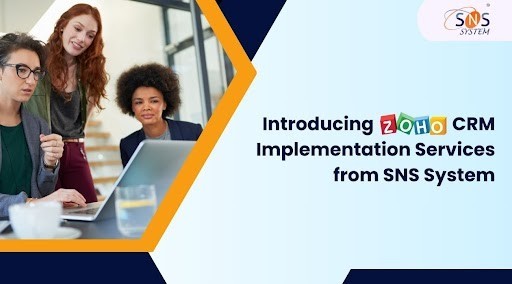
Introducing ZOHO CRM Implementation Services from SNS System
SNS System is offering comprehensive ZOHO CRM Implementation Services. Discover how this powerful tool can transform your business operations and drive success.
Introduction to Zoho CRM Implementation Services
At SNS System, we are committed to helping businesses thrive in the digital age. With the increasing need for efficient customer relationship management, we are proud to introduce our ZOHO CRM Implementation Services. Our goal is to ensure that your business can leverage Zoho CRM to enhance customer interactions, streamline workflows, and achieve your business objectives.
Why Choose ZOHO CRM?
ZOHO CRM is an industry-leading customer relationship management platform that offers a plethora of features designed to support businesses of all sizes. Here’s why ZOHO CRM stands out:
1. Comprehensive Customer Management:
- Manage all your customer interactions and data in one centralized location, ensuring seamless communication and data accuracy.
2. Advanced Automation:
- Automate routine tasks to free up valuable time for your team, allowing them to focus on high-impact activities.
3. Customizable and Scalable:
- Tailor ZOHO CRM to meet your specific business needs and scale it as your business grows.
4. Real-time Analytics and Reporting:
- Gain insights into your business performance with robust analytics and reporting tools that provide real-time data.
5. Integrated Communication Tools:
- Utilize integrated tools for email, phone, and social media to enhance customer communication and engagement.
Our ZOHO CRM Implementation Process
Recommended by LinkedIn
The Role of CRM in Business Management
Elite Games Inc. 10 months ago
The Role of CRM in Business Management
ELITE GLOBAL SOURCING 10 months ago
What Is a CRM and How Does It Work?
Stevie Clark 1 year ago
Implementing ZOHO CRM with an SNS System is a seamless process designed to deliver maximum value:
1. Consultation and Needs Assessment:
- We start by understanding your business processes and specific needs to tailor Zoho CRM to your requirements.
2. Customized Configuration:
- Our team configures ZOHO CRM to align with your workflows, ensuring that the platform supports your business operations effectively.
3. Data Migration:
- We ensure a smooth transition of your existing data into ZOHO CRM, maintaining data integrity and accuracy.
4. Comprehensive Training:
- Our experts provide detailed training sessions to ensure your team is proficient in using the new system.
5. Ongoing Support and Optimization:
- We offer continuous support and periodic optimizations to ensure that ZOHO CRM evolves with your business needs.
Get Started with the SNS System
Be ready to transform your business operations with ZOHO CRM. Contact us today to learn more about our implementation services and how we can help you achieve your business goals. Learn more: https://snssystem.com/our-services/ZOHO-CRM-Implementation-Services/
To know more please visit: https://snssystem.com/our-services/Wordpress-and-Zoho-Integration-Services/
https://snssystem.com/portfolio/php-projects.html
https://snssystem.com/
#wordpress zoho integration#zoho crm integration#zoho data integration#wordpress zoho crm#zoho crm help#zoho lead generation#crm zoho login
0 notes
Text
Why E-commerce Brands Need Specialized Web Development Companies
In today’s highly competitive online marketplace, running a successful e-commerce business requires more than just uploading products and hoping for sales. It demands a seamless user experience, fast load times, secure transactions, mobile responsiveness, and ongoing technical innovation. That’s why growing e-commerce brands increasingly rely on a specialized Web Development Company to build, optimize, and scale their digital storefronts.
Unlike generalist agencies, e-commerce-focused development companies understand the specific challenges, technologies, and customer expectations unique to online retail. Here's why partnering with a specialized team makes all the difference.
1. Custom-Built for Performance and Conversions
E-commerce success is rooted in how well your website performs—from page speed and layout to checkout design and conversion flow. A specialized web development company doesn’t rely on cookie-cutter templates. Instead, it builds custom e-commerce platforms tailored to your brand’s goals, ensuring optimized product pages, streamlined navigation, and lightning-fast checkout processes.
They understand the psychological triggers and conversion tactics—like urgency timers, product recommendations, and simplified cart experiences—that turn browsers into buyers.
Why it matters: Even a one-second delay in load time can reduce conversions by 7%.
2. Integration with Inventory, CRM, and Payment Systems
E-commerce websites must work flawlessly with a range of third-party tools—from inventory management systems and CRMs to payment gateways and shipping platforms. Specialized developers have deep experience integrating platforms like Shopify, WooCommerce, Magento, BigCommerce, or custom-built solutions with tools like Razorpay, Stripe, Shiprocket, Zoho CRM, and more.
They don’t just plug tools in—they ensure real-time data syncing, error handling, and security compliance across platforms.
Why it matters: Seamless integration avoids operational hiccups and enhances the overall customer experience.
3. Mobile-First, Responsive Design
Over 60% of e-commerce traffic comes from mobile devices. A specialized web development company designs and tests websites specifically for smartphones and tablets, not just desktops. They prioritize mobile performance with responsive layouts, intuitive menus, quick loading, and mobile-friendly payment flows.
They also incorporate mobile-specific features like sticky add-to-cart buttons, swipeable product galleries, and voice search compatibility.
Why it matters: Mobile optimization directly impacts search rankings, user experience, and mobile conversion rates.
4. Scalable Architecture for Growth
An e-commerce website is never “finished.” As your brand grows, you may need to add new product categories, international versions, or customer support features like chatbots and AI search. E-commerce developers build with scalability in mind—using modular code, flexible CMS platforms, and headless architecture when needed.
They future-proof your store to handle traffic spikes during sales, product launches, or festive campaigns without breaking or slowing down.
Why it matters: Scalable infrastructure supports your brand's growth without downtime or performance issues.
5. Enhanced Security and Compliance
E-commerce websites handle sensitive customer data—payment details, shipping addresses, login credentials. Security breaches can destroy brand trust overnight. Specialized developers implement the highest standards of data protection, SSL encryption, secure checkout protocols, and GDPR compliance.
They also stay updated on evolving data regulations and help implement two-factor authentication (2FA), fraud prevention tools, and secure admin access.
Why it matters: Protecting customer trust is as important as gaining it.
6. SEO and CRO Best Practices Baked In
What’s the point of having a great website if nobody can find it? E-commerce developers understand the technical side of SEO—such as structured data, clean URL structures, schema markup, and page speed optimization—that help you rank on Google.
They also build websites with Conversion Rate Optimization (CRO) in mind—placing CTAs strategically, simplifying forms, and designing compelling product pages.
Why it matters: A site built with SEO and CRO principles generates more traffic and converts more visitors into customers.
7. Ongoing Maintenance and Support
The e-commerce ecosystem evolves rapidly. Whether it’s a new security patch, third-party API changes, or UX updates, ongoing maintenance is non-negotiable. Specialized agencies offer dedicated support plans, ensuring your website remains fast, secure, and aligned with the latest trends and technologies.
Why it matters: Reliable support keeps your store running 24/7 and protects against revenue loss due to downtime.
Final Thoughts
E-commerce is not a one-size-fits-all industry. From custom development to scalable integrations and conversion-centric design, every detail matters. That’s why serious brands choose to work with a specialized Web Development Company that understands the nuances of building successful online stores.
If you're looking to grow your e-commerce brand sustainably, you need more than a website—you need a high-performing digital storefront built by professionals who live and breathe e-commerce. With the right development partner, you can turn your online presence into a powerful engine for growth, loyalty, and revenue.
0 notes
Text
The Top Business Card Apps of 2023 Networking Made Easy: Biz Connect.

In moment's fast- paced business world, networking remains a pivotal aspect of career growth and professional success. And what better way to make a lasting print than with a well- designed digital business card? With the rise of smartphones and the need for contactless relations, business card apps have come essential tools for professionals looking to connect painlessly. In this composition, we'll explore the stylish business card apps of 2023 to help you streamline your networking sweats.
LinkedIn:
LinkedIn, the world's largest professional networking platform, continues to be a go- to choice for digital business cards. Its erected- in QR law point allows you to fluently partake your professional information with others. The app also offers a" Find near" point, making networking at events a breath of fresh air.
CamCard
CamCard is a popular business card scanning app known for its delicacy in digitizing contact information. It not only captures the textbook on a business card but also organizes and stores it in a stoner-friendly interface. With features like dispatch hand prisoner and CRM integration, CamCard is an important tool for managing connections.
ScanBizCards
ScanBizCards is another excellent choice for digitizing and organizing business cards. It offers both homemade entry and OCR scanning, icing that you capture every detail directly. Integration with popular CRM systems and the capability to export data to Excel make it a top pick for professionals.
Haystack
Haystack takes a unique approach to digital business cards by creating" Haystack Cards." These cards aren't just stationary contact information but interactive and updatable in real- time. This dynamic point makes it easy to keep your network streamlined on your rearmost trials.
Cardhop
Cardhop, developed by Flexibits, the platoon behind Fantastical, is an intelligent contact operation app for macOS and iOS. While not a traditional business card app, Cardhop excels at managing and organizing connections efficiently. It syncs with your being connections, allowing you to fluently partake your information digitally.
Zoho CRM
Zoho CRM, a popular client relationship operation platform, offers a business card scanner as part of its point set. This integration ensures that scrutinized business cards are seamlessly added to your CRM, streamlining your deals and marketing sweats.
Evernote
Evernote is a protean note- taking app that also excels at managing business cards. You can use its camera point to capture cards and also label and organize them within your notes. Integration with LinkedIn and dispatch makes it easy to connect with new connections.
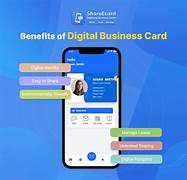
In conclusion, as networking continues to play a vital part in professional success, having a dependable business card app is essential. The stylish app for you depends on your specific requirements and preferences. Whether you prefer a standalone business card scanner or a comprehensive contact operation result, there is an app in 2023 to suit your conditions. Embrace the digital age, streamline your networking sweats, and make lasting connections with these top business card apps.
BizConnect helps you scan business cards with 100% accuracy in 30+ languages. You can scan business cards to google by using the export feature of BizConnect.Go to BizConnect app, click on export, select google. Login to the google account where you want to export contacts and either select contact you want in google contact or select all to transfer all contacts to your google contact. Know more:https://bizconnectus.com/
#Best app for business cards#Best business card app#Best business card scanner#Best business card scanner app
1 note
·
View note
Text
Affordable & Reliable Zoho CRM Platform for Your Business
The one other thing that we have found working with Simply Solved is that they're quick; I mean, I wasn't expecting this, and you know they've been quite good. You send an email response within a couple of hours at the worst, sometimes within minutes.
If you want something doing, they'll turn it around, and while we were building the system that they work full shifts even overnight in some cases to get it delivered on time, so yeah Simply Solved did come up with the goods, and yeah I could recommend them for that.
What Made You Choose Zoho?

The starting point wasn't Zoho platform; the starting point was I realized we needed a CRM system, and we'd been looking for some time for a CRM system. We'd done a lot of due diligence, and Zoho was one of the ones that we just kept coming back to you because it seemed to have everything we needed all in one box.
What Advantages Does Zoho CRM have?
There are a vast number of advantages to having the Zoho CRM in place, and Zoho has mainly been a revelation for the Business. One of the reasons that we went for this because we were finding we were missing parts of our process and having Zoho CRM in place means that we now don't miss parts of the process, we do what we say we're going to do.
What Impact has the Zoho platform had on your Business?
One of the problems that we were finding was that customers were contacting us with specific requirements. Somebody was saying yes, we'll do that piece of work, but it was disappearing between the cracks, and six weeks later, we were finding that we'd missed a big thing that we should have done for a customer that's just unacceptable. So to close those gaps, we needed something, and Zoho's provided the answer for that.
Why did you choose Simply Solved as your CRM Provider?
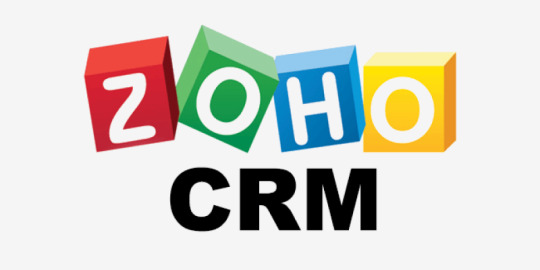
When we decided to go with Zoho one, there were two providers we could have gone with, and in the end, we decided to go with Simply Solved. Simply Solved for us working with a partner that best matched our requirements, we knew that they were going to be flexible. We knew they were going to be quick, and to be honest, we planned, executed, implemented, and got running with a Zoho CRM system in less than four months, which is unheard of in the Business.
What are the advantages of Zoho Projects?
So at the moment with Zoho Projects, what we're tending to find is that when work comes in, a requirement comes into one area of the Business anybody can load it straight onto projects. If it's on the project, it then syncs with everything else, so it also gets an owner. It gets a date, it gets a priority we can't miss stuff anymore, there are no excuses, and there's nowhere to hide.
How easy is it to Customize Zoho to Your Business?
Yesterday, one of our customers phoned me as the managing director with a bit of an issue, and we'd put a new website live but had forgotten to do one thing. I was surprised about this because our processes usually are quite good and everything, of course, is in Zoho Books these days.
So there's no excuse when I went back into the project I realized we'd miss something in our process within two minutes I'd created a new flow within Zoho which is now part of a template. Every other web build from now on has that thing built into it, so there's no way we can miss it in the future.

Why is Zoho Chat Effective?
One of the things that we have found incredibly useful is the Chat, so Chat built within Zoho is a useful tool; it's an instant chat. It's the communication and when you're working with remote teams. Sometimes we are we've got that opportunity to have instant access to these people, the other.
The advantage of it is that it records everything in the Zoho CRM, and this takes it away from being lost in something like a WhatsApp group.
How Does Zoho Improve Productivity in the Workplace?
As a business, we've seen quite an improvement in the productivity that we're getting out of the teams, primarily because they actually can see at the start of each month exactly what they need to do. We can pre-plan this work as well, so that's been quite a revelation for us.
Setting up Zoho with Simply Solved
As part of the set up Simply Solved helpful because they managed to integrate our accounting system, which is zero with Zoho accounting, but in doing so what it meant is we can pull through real-time data from the accounting system and show it in all sorts of ways some of the visual information and the management information I can now get from that is something I could never get before just from the accounting system alone.
What are the Advantages of Zoho Vault?
An unexpected bonus of Zoho is something we didn't realize. Still, it has something within it called Vault, Zoho Vault is a password keeper, and that's great because in an agency like ours where you have single passwords for applications but multiple users somebody leaves you to need to change all the passwords quite quickly using Vault we can do that in just one go.
What is Zoho Sign?
So the previous process we were using for signing up a customer was that we'd send them a Zoho email with all the details on and a direct debit attached they would then send the email back saying yes I agree to it and they'd have to print off the direct debit. They'd have to fill it in and then either scan it or send it or post it to us, which doesn't work that well for digital Business.
Using Zoho Sign, we've managed to integrate the direct debit form as well, so we now simply send them one suite of paperwork which they sign electronically, press a button it comes straight back in. So we know the orders with us, and it's compliant as well, and it sets up a workflow for the accounts team to start creating the invoices.
Is Zoho a Portable System?
One of the advantages of Zoho that we found is that the sales team particularly has access to the entire suite while they're out on the road. All the suite of applications is available as apps that come down to your phone.
You can access all the system while you're out on the road, the beauty about doing that, of course, is that you don't have to wait until you get back home at night to put that urgent request into the office to do something, you can create a task while you're out. Somebody can action it while you're driving to the next call.
Email Integration with Zoho?

One of the significant issues we used to have was when somebody left the Business there was no record of what they'd said to any customer other than on their email account, which of course, over time starts to degrade or gets put somewhere electronically in a back burner.
By integrating the emails with Zoho mail, you can have all your customer correspondents appear against the customer account in Zoho Mail. It doesn't matter which member of the team's emailed them. It will still go in, and of course, what that means is that anybody at any time can see what's been promised, what's been delivered, and what the customer wanted.
How has Zoho increased your Profit Margins?
Previously we were having issues with some salespeople thinking it was okay to discount our products to the point where they were well no longer profitable. Using Zoho books, what we've now been able to do is built-in processes, which means that they can't do that.
So when they create the order on the system, they have some flexibility to move the price up or down but only by a specified percentage, so if we don't want them to discount by more than let's say 10%, we can fix that in the system, they can't process the order if it's outside of those parameters that are critical for profitability.
Mission, Vision, and Values
As a business, we're proud of our mission, our vision, and indeed our values and our values are essential to us the trust, loyalty in collaboration with Simply Solved. We felt we found a partner that mirrored our values but, more importantly, somebody we knew we could work with for the long term.
#Zoho#Zoho CRM#zoho books#zoho projects#zoho login#zohobooks#zoho one#zoho invoice#zoho campaigns#zoho erp#zoho software#zoho mail#zoho mail login#zoho books login#zoho crm login#zoho accounting
1 note
·
View note
Text
Why Zoho CRM is Very Necessary for Any Business?
Do wanna know the real importance of Zoho CRM for any kind of business organization? Let's go and visit this amazing article.
Read More: https://searchlix.com/why-login-into-zoho-crm-is-important-for-business/
1 note
·
View note
Link
Herein is a comprehensive review of the Zoho Customer Relationship Management (CRM) and its importance for businesses, professionals, and organizations. To provide the great CRM solution for lean startups and small businesses, Zoho also offers a free version with a section of features.
0 notes
Text
CRM script for your business
Customer relationship management (CRM) is a technology which is used for managing company’s relationships and interactions with potential customers. The primary purpose of this technology is to improve business relationships. A CRM system is used by companies and to stay connected to customers, streamline processes and increase profitability. A CRM system helps you to focus on company’s relationships with individuals i.e. customers, service users, colleagues, or suppliers. It provides supports and additional services throughout the relationship.
iBilling – CRM, Accounting and Billing Software
iBilling is the perfect software to manage customers data. It helps to communicate with customers clearly. It has all the essential features like simplicity, and user-friendly interface. It is affordable and scalable business software which works for your business perfectly. You can also manage payments effortlessly because it has multiple payment gateways.
DEMO DOWNLOAD
Repairer Pro – Repairs, HRM, CRM & much more
Repairer pro is complete management software which is powerful and flexible. It can be used to repair ships with timeclock, commissions, payrolls and complete inventory system. Its reporting feature is accurate and powerful. Not only You can check the status and invoices of repair but your customers can also take benefit from this feature.
DEMODOWNLOAD
Puku CRM – Realtime Open Source CRM
Puku CRM is an online software that is especially designed for any kind of business whether you are a company, freelancer or any other type of business, this CRM software is made for you. It is developed with modern design that works on multiple devices. It primarily focuses on customers and leads tracking. It helps you to increase the profit of your business.
DEMO DOWNLOAD
CRM – Ticketing, sales, products, client and business management system with material design
The purpose of CRM software is to perfectly manage the client relationship, that’s how your business can grow without any resistance. This application is made especially for such type of purpose. It is faster and secure. It is developed by using Laravel 5.4 version. You can update any time for framework or script. It has two panels; one is Admin dashboard and the other is client panel. Admin dashboard is used to manage business activities while client panel is made for customers functionalities.
DEMO DOWNLOAD
Abacus – Manufacture sale CRM with POS
It is a manufacture and sale CRM with pos. it can easily manage products, merchants and suppliers. It also can be used to see transaction histories of sellers and suppliers while managing your relationships with sellers and buyers. Moreover, its amazing features include social login and registration, manage bank accounts and transactions and manage payments. It also manages invoices and accounting tasks. It has many features which are powerful and simple to use.
DEMO DOWNLOAD
Sales management software Laravel – CRM
It is a perfect CRM software with quick installation in 5 steps. it is designed precisely according to the needs of a CRM software. It has user-friendly interface and fully functional sales system. Customer management is effortless by using this software. You can mange your products and invoices without any hustle.
DEMO DOWNLOAD
Sales CRM Marketing and Sales Management Software
It is a sales CRM that consists a tracking system for marketing campaigns, leads and conversions to sales. It can boost your sales up-to 500% ROI, following the normal standards of marketing. It has built in SMTP email integration which helps you to easily track your emails from the application and the leads easily. You can also track the status of campaign, ROI and sales quality. Sales CRM will proof very helpful to your business. Whether your business is small, freelancing, or a large-scale organization.
DEMO DOWNLOAD
doitX : Complete Sales CRM with Invoicing, Expenses, Bulk SMS and Email Marketing
it is a complete and full fledge sales CRM which includes invoicing, expenses, bulk sms and email marketing software that is an amazing feature for any company, small business owners, or many other business-related uses. It is a perfect tool which can organize all data efficiently. With its feature of excellent design, doitX helps you to look more professional to you clients as well as to the public. it improves the performance of your business in every aspect. You can do your sales operations while all the information is easily accessible. It also helps you to keep track of your products, sales, marketing records, payments, invoices and sends you timely notifications so that you can take appropriate actions. It can perform whole company’s operations in a simple and effortless way. It also has many other key features which your business deserves.
DEMO DOWNLOAD
Laravel BAP – Modular Application Platform and CRM
Laravel Bap is all in one application at low price with great benefits. If you are going to build a complex application that has multiple modules, rest API, fast and reliable, then this application is made for you. It is a modular backend application platform that is build by using Laravel 5.6, Twitter Bootstrap and SCSS. It is easy to extend and customize. It has over 20 amazing features.
DEMO DOWNLOAD
LaraOffice Ultimate CRM and Project Management System
LaraOffice is a complete CRM and Project management system which is a fully featured software. It has multi-login functionality. It helps to manage the daily sales, customer follow ups, meetings, invoices, marketing, services and orders. Customers’ requirements can be fulfilled by such an ultimate CRM and project management software solution perfectly. LaraOfficre CRM helps you to look more professional and authoritative to your customers as well as to the public.
DEMO DOWNLOAD
Banquet CRM – Events and Banquets management web application
Banquet CRM is a web application which is especially designed for restaurants, hotel and unique venues to increase sales and streamline the planning process. You can capture and convert new event leads from anywhere. It allows you to deliver branded, professional-looking proposals and orders quickly. It is also fast and durable. It has many features that are unique and perfect for you.
DEMO DOWNLOAD
Laravel CRM – Open source CRM Web application – upport CRM
Upport is a beautifully designed CRM application that is made exactly according to the feedback and real needs of users. Upport CRM helps you to increase sales with unique features. Its interface is user-friendly, responsive, real supportive and easy to use. CLI installer tool is provided for installation of Upport CRM for your convenience. It tracks sale opportunity easily using Kanban view. You don’t need to worry about data disaster because with auto backup feature of Upport you can easily set schedule to automatic backup from database and attachments.
DEMO DOWNLOAD
LCRM – Next generation CRM web application
LCRM is a modern CRM web application with a lot of features. It has three sections admin, staff and customers respectively. LCRM has many unique modules. It is a complete functional CRM and sales system. If your business needs new customers and growing sales then LCRM is perfectly made for you. It holds various advantages like recording the leads, showing the opportunities, sales team targets, actual invoices of entries. Moreover, it has amazing features like real time notifications with pusher.com, backup data to dropbox and amazon s3, repository pattern and single page application (SPA) that is appropriate with VueJS.
DEMODOWNLOAD
Microelephant – CRM & Project management system built with Laravel
Microelephant CRM is a web-based software which provides customer relationship & Project management and billing facilities. It is suitable for almost every company. It is developed by using Laravel 5.7 and Bootstrap 4.2 CSS framework. It has unique features like client portal for each customer, leads management. Tasks & timesheet, customers and contacts management, proposals, electronic signature, credit notes and invoices.
DEMO DOWNLOAD
Incoded CRM – Customer Relationship Management System
Incoded CRM – Customer relationship management system is developed according to the feedback of project managers and business owners who actually use it. After findings the key ideas which we need the most, we gathered these ideas in one place and make this CRM out of these ideas perfectly. Now it is shared with the world. It hasn’t stopped progressing yet because it is expanding everyday as more and more ideas are coming. It is an app which updates itself every day.
It has multiple unique features. As the top entity in the CRM is Work space Incoded CRM is organized in work spaces. You can use it to easily separate and organize your resources, projects, tasks etc. work spaces have their own dashboards. It contains major and contemporary information form the CRM i.e. notes, activities and tasks, tasks chart etc.
DEMO DOWNLOAD
Zoho CRM
CRM systems play an imperative role to manage your sales revenue, sales teams, and most importantly increase customer relationships. You don’t have to worry about it because Zoho CRM is the system which fulfill all your needs. It is loaded with features to help you start, equip, and grow your business for free, for up to 3 users.
It manages users, profiles and roles efficiently. You can easily import data for free with import history and manage your leads, accounts, contacts and deals by using Zoho CRM. It can also export any module data and import leads directly with the business card scanner.
Zoho CRM turn data into sales. You can sell through telephony, email, live chat, and social media. It gets you real-time notifications when customers interact with your brand and add tasks, calls, and events, and sync them with your calendar. It helps you to collaborate with your team through feeds and give you access to multiple CRM views.
It Makes planning and expanding easier. You can get 1GB file storage & 25k record storage and set up recurring activities for your team. It helps you to export activities to google calendar and google tasks.
DEMO DOWNLOAD
Powerful CRM – LiveCRM Pro
LiveCRM pro is a perfect and complete CRM solution with fully PHP7 compatibility. It has unique features and developed by using Yii 2.0 framework. It has excellent sales system that manage leads store all the leads and organization information that your sales process demands. You can look up leads and the associated contact and business information ins a few seconds. The method which is integrated in it is paypal payment gateway. It provides precise customer management and user management. It also has a unique feature of messenger and chatting system.
DEMO DOWNLOAD
1 note
·
View note